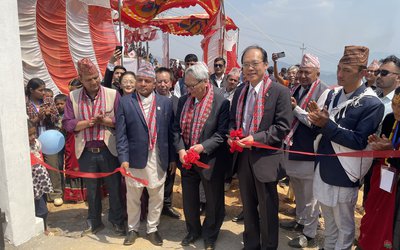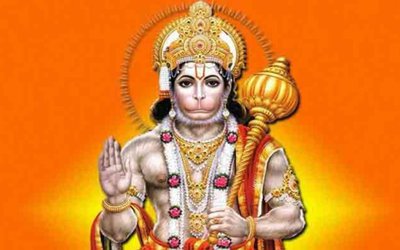Around 78 former Constituent Assembly members belonging to the Nepali Congress have petitioned to their Party President Sushil Koirala to have the House revived. No one knows who the key actor in the group is, but the members have clearly been string-pulled by forces outside for this. This also suits the line of Maoist Chief Prachanda who knows that total collapse or erosion in the authority of the institutions of the state will pave the way for complete take-over of the state power.
Prachanda’s status and strength have suffered a nose dive with the spilt in the party. His credibility, in the past five years, has suffered irreversibly as someone with a huge gap between what he says and does. Yet, his ambition border-lining megalomania has not receded. The only other rival who marshals in the art of nurturing authoritarian ambition currently is the caretaker Prime Minister Baburam Bhattarai.
Yet, lack of vision, courage and character on the part of other parties leaders and short-term power centric politics pursued by them at the cost of democratic values puts Bhattarai and Prachanda—despite their internal rivalry—in a much advantageous position tactically. After all, going by their track records, they are neither nationalist nor have transformed into ‘democrats’ despite their promises post 12-point agreement politics. Therefore, during each crisis, they will want to have ‘problems’ sorted out by a small group of leaders who are power-hungry and willing to sacrifice national interest and basic democratic values. That also explains why they are not keen to take any of the major issues before the Nepali people.
There is almost a wave of anger and frustration directed against the major four parties and their top leaders sweeping across the country. The outcome of the poll, if held freely and fairly, can be predicted easily. The big four and their top leaders will be the biggest losers. That is why Bhattarai is recommended an election (to the CA) in a conspiratorial manner knowing very well that it cannot be held. There is no provision in the interim constitution to hold a fresh election to the CA or even for parliament. But Bhattarai acted unconstitutionally, arbitrarily and conspiratorially under calculation that he will continue to be in power as a care0taker indefinitely. His statement on June 25, soon upon his return from Rio, that he will hand over power only to someone elected through general elections was manifestation of that megalomania.
Given the manner Bhattarai ensured the demise of the House in failure and keeping all the members in the dark about his going for fresh poll, President Ram Baran Yadav has seen through the motive behind. But how far will a President go to tame a Prime Minister so megalomaniac? And what can a President do when members of the main opposition and the biggest ‘democratic force’ in the country work to suit Maoist interest poised to win both ways.
If the House is revived, it will be a victory for Prachanda. He will still be the most powerful leader because the CA poll outcome will be taken as a barometer for that notwithstanding the vertical split in the party recently. A failure to have the House revived will keep the parties divided and will ensure continuation of Bhattarai as the caretaker Prime Minister. Mahanth Thakur-Bijay Gachedar-Rajendra Mahato group of the Madhesh front will continue to be in alliance with Maoists.
Who are the signatories to the petition submitted to Sushi Koirala? They mainly belong to women and other Caucus groups, as well as those who have been working with Western donors whose activities in fuelling caste and ethnic tensions, which are now getting increasingly exposed in the Media. Their investment and interest will go in vain if the House is not restored. Some unconvincing clarifications have been issued from some western countries that their financial support to ethnic and other groups is to promote policy of inclusion. But the question arises: why is France or Germany or Finland, despite their involvement in Nepal’s development, not being criticized?
China has, for the first time, given enough hint in words and deeds that it is not too happy with the way Nepali actors have conducted themselves in the past six years. From warning that ethnic federalism, in particular, and federalism in general may not be the most suited ‘state restructuring,' it has also, for the first time, said that any instability in Nepal will be directly related to the security of China.
These are serious issues which cannot be addressed with the lack of seriousness and honesty that leaders demonstrated in the past four years. Nor can it be sorted out by leaders of the four parties. The four parties at most could form a ‘block' or 'alliance’ to plead their case, collectively tell the people that they had the best of intentions even when they failed to complete the peace process and the constitution-making process. But they cannot have the sale monopoly over power, political process and constitution-making process any more. President Yadav must take this into account when he takes the next step, but revival of the House and entrusting leadership to the gang of four, or any one of them, will be the biggest sin he will be committing against the nation and democracy.
- TANAHU HYDROPOWER PROEJCT: A Significant Achievement
- Apr 15, 2024
- AMBASSADOR HANAN GODAR: Sharing Pain With A Nepali Family
- Mar 30, 2024
- VISIT OF KfW AND EIB TO NEPAL : Mission Matters
- Mar 25, 2024
- NEPAL BRITAIN SOCIETY: Pratima Pande's Leadership
- Mar 24, 2024
- NEPAL ARMY DAY: Time To Recall Glory
- Mar 15, 2024
















